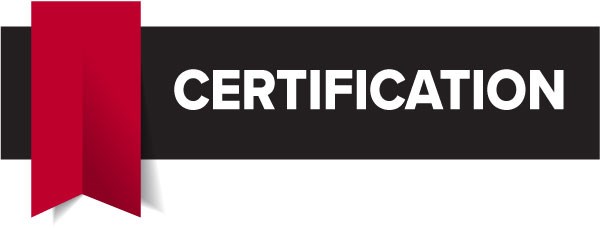EMRA believes emergency physicians are residency-trained and board certified by ABEM or AOBEM. But what does that mean for physicians-in-training? What steps must we take to become board certified? And what is the value of certification?
Initial Certification
Emergency physicians may consider themselves “board eligible” for no longer than 5 years after graduating from residency. Initial ABEM certification includes a one-day written exam than can be taken at testing centers throughout the US during one week of fall, and an oral exam offered in the spring or fall at “ABEM General” a.k.a. the Chicago O'Hare Marriott Hotel. Candidates who successfully complete both of these tests are recognized as ABEM diplomates.
Nuts & Bolts of Maintenance of Certification
Becoming an ABEM diplomate is only the first step of a lifelong process of continuous learning. The American Board of Medical Specialties (ABMS) has created recommendations for an integrated 4-part framework for maintenance of certification (MOC).
Part I: Professional Standing and Professionalism
ABEM Diplomates must maintain a current, active, valid, full, unrestricted, and unqualified license to practice medicine in at least one jurisdiction of the U.S., its territories, or Canada to meet the requirements for MOC.
Part II: Lifelong Learning and Self-Assessment (LLSA)
ABEM's LLSA activity is an annual set of 10-15 readings with an open-book, online test in the areas of EM, EMS, or medical toxicology. Diplomates must complete 4 LLSA tests in each 5-year period. For a small fee, diplomates can claim CME credit for their LLSA activities which can be applied to the 25 AMA/AOA CME credits per year on average that is required for MOC.
Part III: Assessment of Knowledge, Skills, and Judgement
Since being founded in 1979, ABEM has always required recertification with a time-limited 10-year certificate. In 2004, this exam was rebranded the ABEM ConCert (Continuous Certification) Exam. It is a high-stakes, proctored exam of approximately 200 multiple choice questions. ConCert can be taken during any year of the second 5-year period after initial certification, and if passed, extends certification by an additional total time of 10 years, meaning diplomates could go 14 years between ConCert exams.
Part IV: Improvement in Medical Practice
ABEM diplomates are expected to regularly assess and improve the quality of the care they provide. Previously this has been done through attestation to participation in quality improvement projects in their departments or institutions; in the future, ACEP members participating in the Clinical Emergency Data Registry (CEDR) can meet this requirement by logging into CEDR to review their performance and adherence with quality measures over time.
The Value of MOC
In 2017, Texas lawmakers passed a bill to restrict the use of MOC as a credential for hospital privileging, asserting that MOC programs are excessively costly, time-consuming, irrelevant to the practice of medicine, and fail to improve patient care. Similar legislation has been introduced in other states.
The annualized costs of ABEM's MOC program are approximately $265 per year, or less than 0.1% of the average diplomate's annual pay, placing ABEM fees near the 50th percentile relative to all ABMS member boards. A 2013 ACEP salary survey showed board-certified emergency physicians earn $34,800 more per year than non-board-certified physicians.
Surveys of ABEM diplomates report that MOC increases and reinforces medical knowledge, primarily through extensive studying to prepare for the exam, and that board certification increases employment options.
Future of MOC and the Coalition to Oppose Medical Merit Badges
Society has traditionally granted physicians the privilege to regulate themselves. Efforts to undermine self-regulation may have unintended consequences. Emergency physicians care for people during their greatest time of need, and board certification demonstrates that we hold ourselves to a higher standard.
Some objections to MOC programs focus on the high-stakes nature of 10-year recertification. ABEM recently held a summit to discuss alternatives to the ConCert exam, the findings of which will be announced in the spring.
ABEM and AOBEM have also organized the Coalition to Oppose Medical Merit Badges, a group of EM organization representatives who believe board certification obviates the need for any additional certifications for medical staff privileges or disease-specific care center designations. Emergency physicians are masters of resuscitation who operate beyond the algorithms of ACLS and ATLS. We are expert in caring for patients with strokes and heart attacks. And we should not need permission from departments of anesthesiology to perform sedation in our own departments, as administering these medications and managing airways are key components of our training. Board certification is the highest standard, and with it, we have proven ourselves ready to handle anything that comes through our doors, 24/7/365.
References
- Counselman FL, Carius ML, Kowalenko T, et al. The American Board of Emergency Medicine Maintenance of Certification Summit. J of Emerg Med. 2015;49(5):722-8.
- Drolet BC and Tandon VJ. Fees for Certification and Finances of Medical Specialty Boards. JAMA. 2017;318(5):478-9.
- Johnson DH. Maintenance of Certification and Texas SB 1148: A Threat to Professional Self-regulation. JAMA. 2017;318(8): 697-8.
- Marco CA, Wahl RP, Counselman FL, et al. The American Board of Emergency Medicine ConCert Examination: Emergency Physicians' Perceptions of Learning and Career Benefits. Acad Emerg Med. 2016;23(9):1082-5.
- Standards for the ABMS Program for Maintenance of Certification (MOC). American Board of Medical Specialties. Published January 15, 2014. Accessed November 15, 2017. http://www.abms.org/media/1109/standards-for-the-abms-program-for-moc-final.pdf



